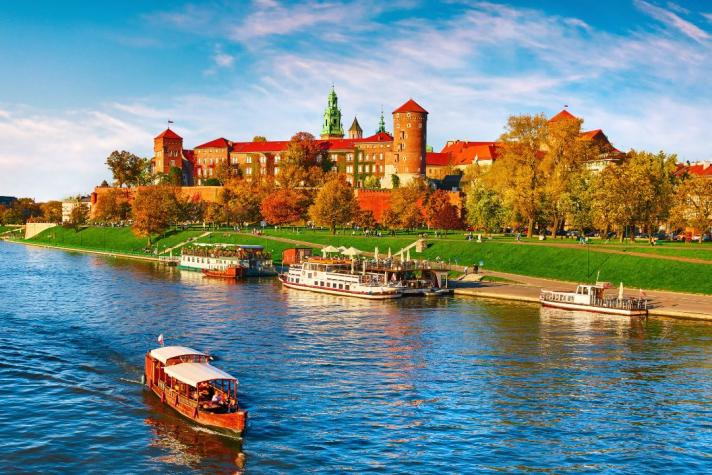Krakow aimed to increase public interest in the climate crisis, gather ideas on energy efficiency and derive collaborative recommendations for city actions. The assembly led to high-quality binding recommendations which are binding for the Mayor of Krakow. The success of this assembly has already led to the organisation of a new assembly in 2023.
Introduction
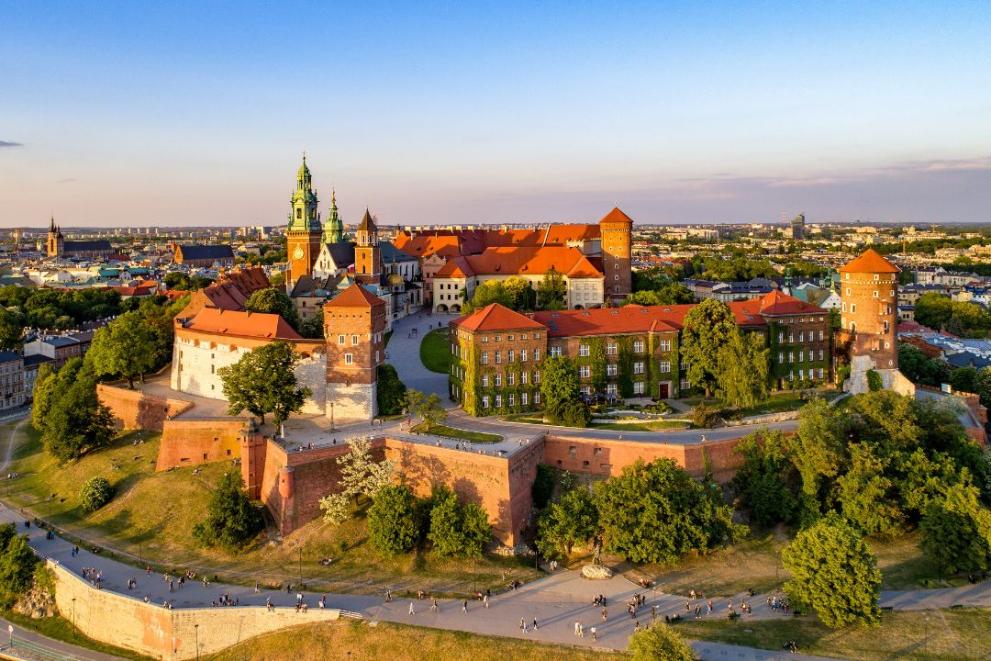
To enhance cooperation between the city and its residents, Krakow implemented an innovative participatory tool called the Krakow Climate Assembly. This citizens' assembly, a form of deliberative democracy, aimed to collectively generate recommendations for public administration on specific issues. During assembly meetings, participants engaged in informative sessions with experts and stakeholders related to the topic. Following discussions, recommendations were voted upon, and the proposals with the most votes became binding for the city’s office.
The first Krakow Climate Assembly took place in 2021 and focused on addressing climate change and achieving climate neutrality within the city. Participants collaborated to answer the question: How can authorities and residents reduce energy consumption and increase the use of renewable energy? Krakow aims to find socially acceptable recommendations to answer this question, with the overall goal of reducing the city’s annual emission of CO2 to zero.
Objective
Recognising the need to deepen cooperation with residents beyond traditional information dissemination and occasional consultation Krakow introduced the citizens' assembly as a way to strengthen collaboration. Specific aims of the Krakow Climate Assembly include:
- Increasing public interest in the climate crisis and sparking discussion
- Building a community supporting the climate transition comprising residents, experts, social organisations and entrepreneurs
- Gathering ideas on energy efficiency and renewable energy use
- Obtaining recommendations for joint actions of the city and its residents
- Gaining broad acceptance for the city's transformation efforts
The Krakow Climate Assembly, comprised of randomly elected residents, tackled the pressing issue of climate change. Their efforts resulted in 32 high-quality recommendations submitted to the city authorities, becoming binding for the Mayor of Krakow. These recommendations often required interdisciplinary coordination and involved multiple departments, municipal teams and units of the city of Krakow. Individual approaches, planning, and financial resources are crucial for the implementation of recommendations.
As of 2023, a majority of the 32 recommendations have already been implemented or are in the progress. The city consistently updates residents on the progress and status of each recommendation’s implementation via its website, ensuring transparency and accountability.
Description of the measure
The Krakow Climate Assembly is funded by the city of Krakow and organised by an independent Non-Governmental Organization (NGO) with a socio-expert profile. The process involved several stages:
- Public consultations in January 2021 gathered input through online workshops and telephone discussions from residents, NGOs, and informal groups regarding climate challenges, energy consumption reduction, and renewable energy use. These consultations were aimed at ensuring transparency, gathering ideas, and addressing the organisational aspects of the assembly.
- Invitations were sent to 20,000 randomly selected households in Krakow to participate in the assembly. The invitations were provided with the necessary information about the Assembly and the participants' expected involvement. At first, the response was not enough, so the city ran a large media and social media campaign encouraging people who received invitations to participate in the assembly. The participants were compensated for their involvement.
- The representativeness of the assembly's composition was ensured by considering socio-demographic and spatial criteria such as gender, age group, district of residence, and level of education.
- A random draw was electronically conducted among invited and willing participants, with the process broadcasted live. A total of 580 people applied to participate in the Krakow Climate Assembly.
- A group of 60 Assembly Participants, with a reserve group of 10 people, was selected.
From April to June 2021 the Krakow Climate Assembly took place. Before the Assembly formulated possible measures and recommendations for the city, a series of meetings were organised for the Assembly. Through educational workshops and presentations by representatives from the City of Krakow, independent experts, NGOs and businesses, the participants gained knowledge about climate change and possibilities to address it. Subsequently, the Assembly collaboratively develop a list of potential measures and recommendations for the city. An experienced facilitation team supported the participants in reaching consensus on contentious issues through moderated discussions. Finally, through a voting process, the Assembly decided which measures and proposals were most promising. The voting process resulted in the selection of 32 recommendations.
Challenges
Implementation of the citizens' assembly presented organisational challenges, including meeting schedules, facilitation, logistics, and communication. The COVID-19 pandemic added logistical difficulties. Furthermore, it was challenging to gain sufficient involvement in the subject matter of the NGOs Assembly because only a small portion of the NGOs are (pro-) actively engaged in emissions reduction and energy transition efforts. Ultimately, the city succeeded to engage activists who brought valuable knowledge and ideas to the table.Lastly, there was a concern that recommendations developed and voted on by Citizens under the Assembly might be either too trivial or overly ambitious and unrealistic to implement. This challenge was successfully addressed by arranging a series of well-prepared educational sessions.
Stakeholders
Participants of the Krakow Climate Assembly included 60 randomly selected Krakow residents. Experts from universities, companies, municipal units and NGOs were involved to share their knowledge related to the Assembly’s topic, which focused on climate change and becoming a zero-emission city. The pathway to achieving this has to be a fair transformation where the local community is involved. To ensure that the Assembly was well-informed, stakeholders such as institutions, NGOs and informal groups also shared their insights. Online broadcasts of the meetings allowed observers to participate for educational purposes.
Achievements and benefits
The Krakow Climate Assembly engaged residents in addressing climate change and enabled them to collaborate with offices, institutions, and organisations to develop recommendations for the city's climate transformation. Out of the 35 recommendations developed, 32 were approved by over 80% of the Assembly making them binding for the Mayor of the City. This active participation not only favoured the progress towards climate neutrality, but also demonstrated the significant level of public support for pro-climate activities. Currently, most of the recommendations have been implemented or are in the process of being implemented.
Among the binding recommendations, the highest support (98%) was obtained for the use of photovoltaic installations in municipal public buildings and facilities such as parking lots, garages, bus stops, and depots, along with efforts to secure financing from internal and external sources (of course when feasible and justified).
The success of the Krakow Climate Assembly led to the organisation of a second assembly: the Krakow Transport Assembly, focused on sustainable transport. This demonstrates the value of this innovative participatory tool approach.
Learning points and recommendations
The city of Krakow learned that residents are eager to participate in pro-climate activities and support the city's goal of achieving climate neutrality. One of the positive outcomes to highlight was the high number of recommendations for strengthening climate education. The city recommends adopting citizens' assemblies as an effective citizen engagement tool.
Good Practices 2023
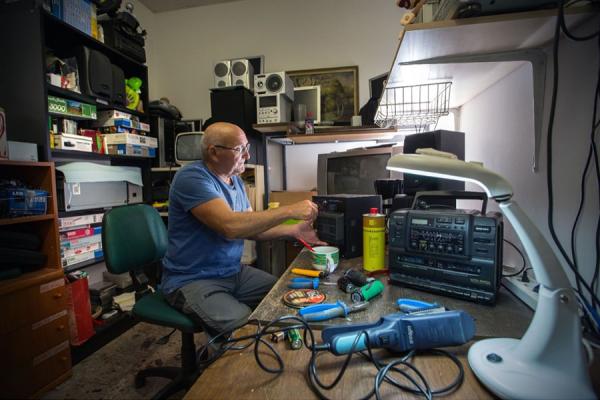
Discover how Velenje Reuse Centre reduces waste, creates green jobs, and fosters a circular economy by refurbishing and selling second-hand items, making a positive impact on the environment and the community.
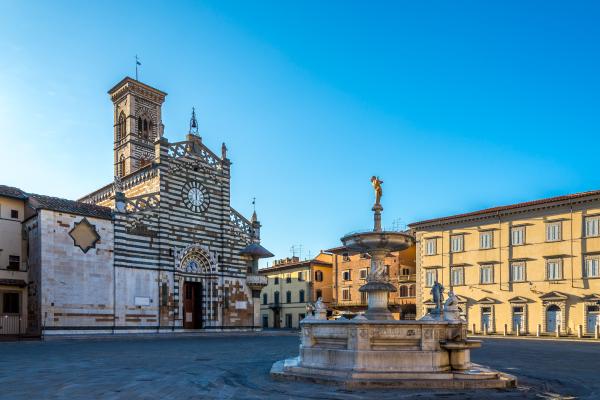
This good practice aims to enhance green space, recreational activities, and host cultural events, while restoring the area’s historical significance.
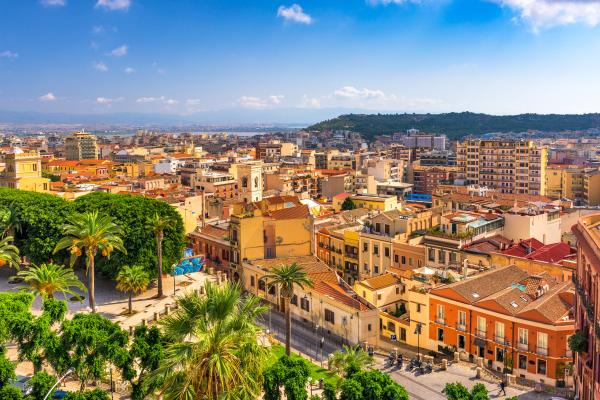
Cagliari aspires to include people in their transition towards their big dream of becoming a sustainable city.
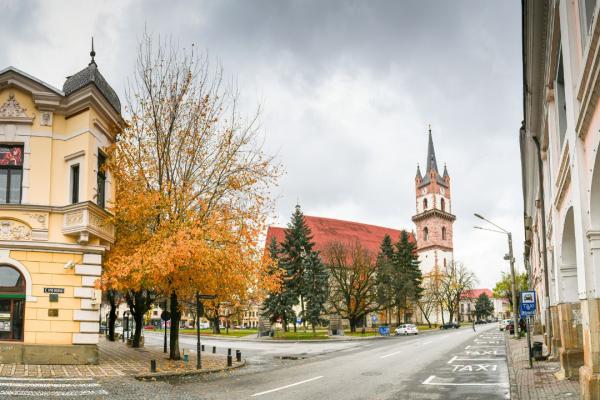
Bistriţa is actively monitoring indoor and outdoor air quality since 2021, as part of the local sustainable mobility campaign "Bistriţa, Zero Carbon City"
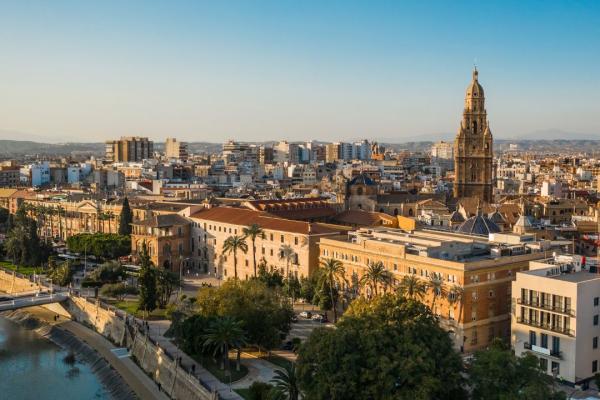
Murcia’s LIFE ENRICH project implements a circular economy approach in wastewater treatment.
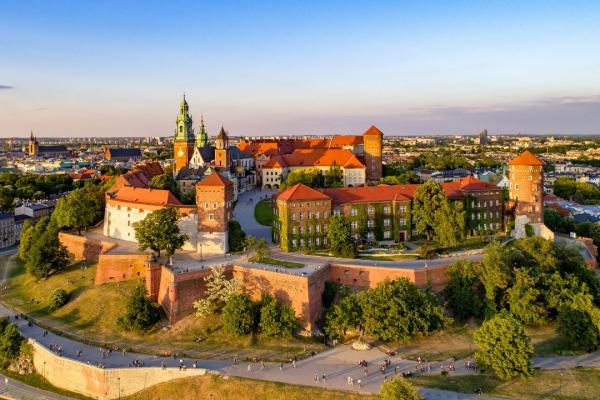
Krakow aimed to increase public interest in the climate crisis, gather ideas on energy efficiency and derive collaborative recommendations for city actions.
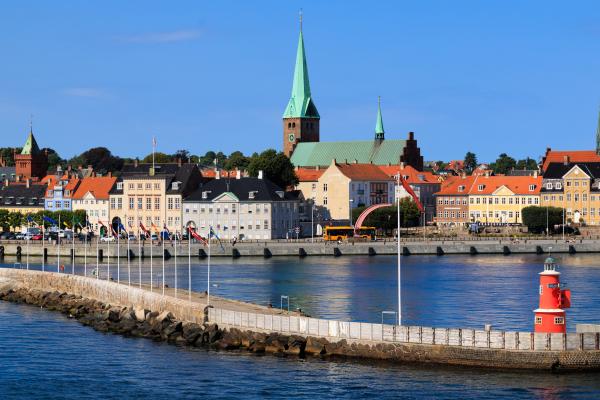
Elsinore captures the attention of visitors by showcasing local and sustainable businesses on their GoGreen card.

